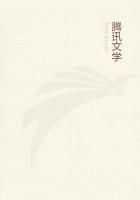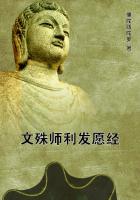"He that would learn to fly must be brought up to the constant practice of it from his youth, trying first only to use his wings as a tame goose will do, so by degrees learning to rise higher till he attain unto skill and confidence."
So wrote Wilkins, Bishop of Chester, who was reckoned a man of genius and learning in the days of the Commonwealth. But so soon as we come to inquire into the matter we find that this good Bishop was borrowing from the ideas of others who had gone before him; and, look back as far as we will, mankind is discovered to have entertained persistent and often plausible ideas of human flight. And those ideas had in some sort of way, for good or ill, taken practical shape. Thus, as long ago as the days when Xenophon was leading back his warriors to the shores of the Black Sea, and ere the Gauls had first burned Rome, there was a philosopher, Archytas, who invented a pigeon which could fly, partly by means of mechanism, and partly also, it is said, by aid of an aura or spirit. And here arises a question. Was this aura a gas, or did men use it as spiritualists do today, as merely a word to conjure with?
Four centuries later, in the days of Nero, there was a man in Rome who flew so well and high as to lose his life thereby.
Here, at any rate, was an honest man, or the story would not have ended thus; but of the rest--and there are many who in early ages aspired to the attainment of flight--we have no more reason to credit their claims than those of charlatans who flourish in every age.
In medieval times we are seriously told by a saintly writer (St. Remigius) of folks who created clouds which rose to heaven by means of "an earthen pot in which a little imp had been enclosed." We need no more. That was an age of flying saints, as also of flying dragons. Flying in those days of yore may have been real enough to the multitude, but it was at best delusion. In the good old times it did not need the genius of a Maskelyne to do a "levitation" trick. We can picture the scene at a "flying seance." On the one side the decidedly professional showman possessed of sufficient low cunning; on the other the ignorant and highly superstitious audience, eager to hear or see some new thing--the same audience that, deceived by a ****** trick of schoolboy science, would listen to supernatural voices in their groves, or oracular utterances in their temples, or watch the urns of Bacchus fill themselves with wine. Surely for their eyes it would need no more than the ******st phantasmagoria, or maybe only a little black thread, to make a pigeon rise and fly.
It is interesting to note, however, that in the case last cited there is unquestionably an allusion to some crude form of firework, and what more likely or better calculated to impress the ignorant! Our firework makers still manufacture a "little Devil." Pyrotechnic is as old as history itself; we have an excellent description of a rocket in a document at least as ancient as the ninth century. And that a species of pyrotechny was resorted to by those who sought to imitate flight we have proof in the following recipe for a flying body given by a Doctor, eke a Friar, in Paris in the days of our King John:--
"Take one pound of sulphur, two pounds of willowcarbon, six pounds of rock salt ground very fine in a marble mortar.
Place, when you please, in a covering made of flying papyrus to produce thunder. The covering in order to ascend and float away should be long, graceful, well filled with this fine powder; but to produce thunder the covering should be short, thick, and half full."
Nor does this recipe stand alone. Take another sample, of which chapter and verse are to be found in the MSS. of a Jesuit, Gaspard Schott, of Palermo and Rome, born three hundred years ago:--
"The shells of hen-eggs, if properly filled and well secured against the penetration of the air, and exposed to solar rays, will ascend to the skies and sometimes suffer a natural change.
And if the eggs of the larger description of swans, or leather balls stitched with fine thongs, be filled with nitre, the purest sulphur quicksilver, or kindred materials which rarify by their caloric energy, and if they externally resemble pigeons, they will easily be mistaken for flying animals."
Thus it would seem that, hunting back in history, there were three main ideas on which would-be aeronauts of old exercised their ingenuity. There was the last-mentioned method, which, by the way, Jules Verne partly relies on when he takes his heroes to the moon, and which in its highest practical development may be seen annually on the night of "Brock's Benefit" at the Crystal Palace. There is, again, the "tame goose" method, to which we must return presently; and, lastly, there is a third method, to which, as also to the brilliant genius who conceived it, we must without further delay be introduced. This may be called the method of "a hollow globe."















